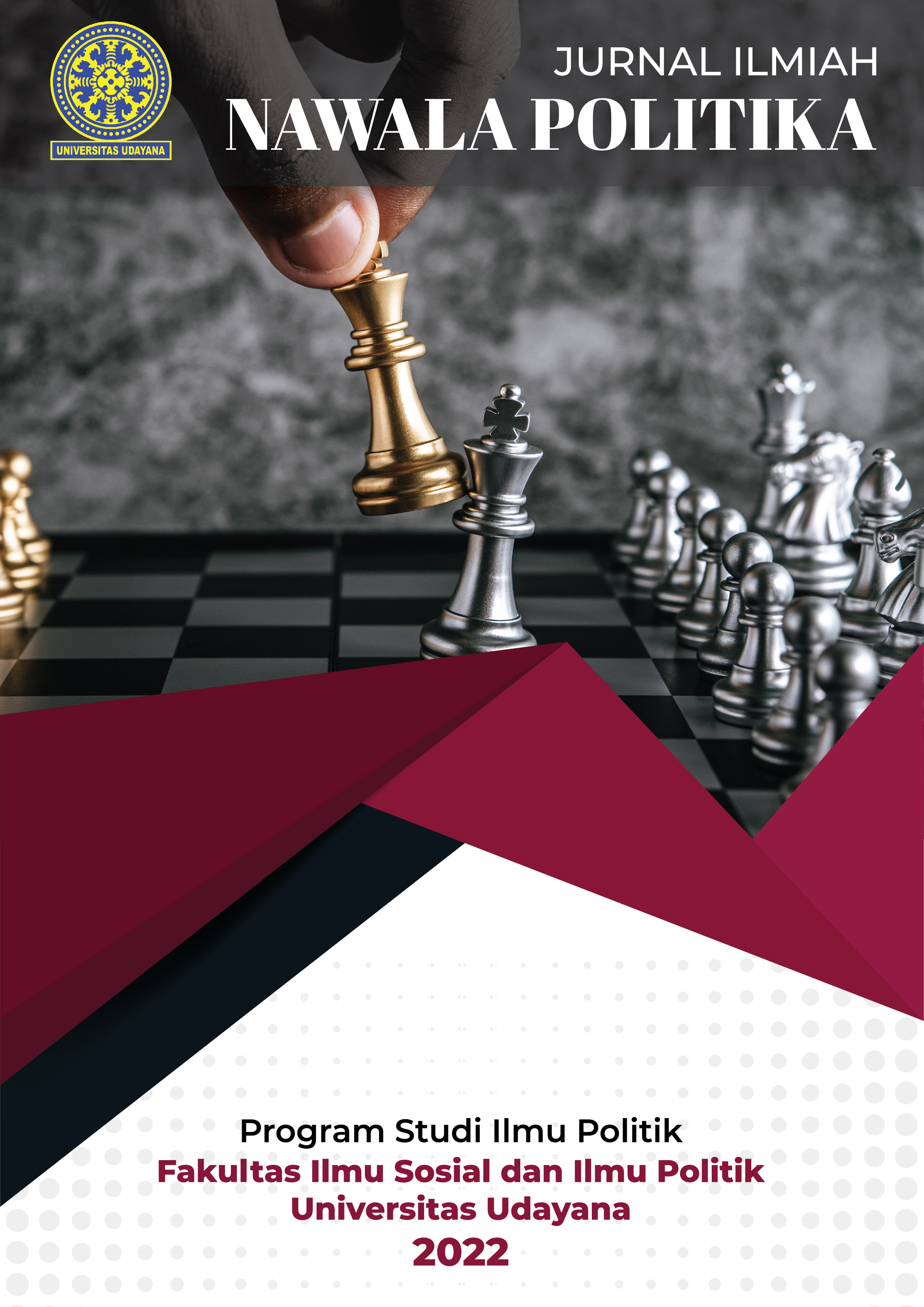Pengelolaan Sampah dalam Politik Ekologi: Studi Kasus Desa Adat Padangtegal
Abstract
This research seeks to explain the power of the Padangtegal Village in waste management in the context of political ecology. This research uses the actor approach based on a politicized environment by Bryant & Bailey. Qualitative analysis and case study approaches were used through data by observation, interviews, and literature study. The findings seek to map the actors involved: the Padangtegal Village (Rumah Kompos), the private sector in tourism, and the grassroots. Through the everyday dimension, environmental changes in the Padangtegal Village are transformed by disciplining the people to manage waste from the household. Rumah Kompos processes the waste to become compost products. The interests of the Padangtegal Village are efforts to improve the image of tourism and get economic value from waste management. The resistance that emerged from the people with a gradual approach by the Padangtegal Village then resulted in habituation in the people.
Keywords: Political ecology, politicized environment, waste management, Rumah Kompos







